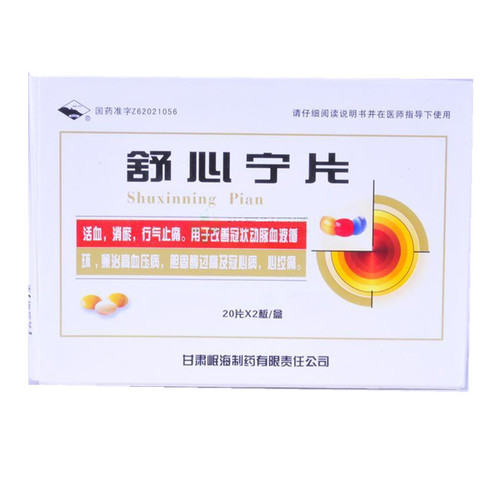Product Overview
Please read the instructions carefully and use under the guidance of a doctor
Generic name: Zhenju Antihypertensive Tablets
Chinese Pinyin: ZhenJuJiangYaPian
Product name: Lei Yunshang
Ingredients: nacre powder, wild chrysanthemum cream powder, rutin, hydrochlorothiazide, clonidine salt.
Properties: This product is a film-coated tablet. After removing the coating, it was yellowish brown; the taste was bitter.
Function and indications: Antihypertensive drugs. Used for hypertension.
Specification: 60 tablets/box
Usage and dosage: Orally, 1 tablet at a time, 3 times a day or as directed by a doctor.
Adverse reactions: Most of the adverse reactions of Zhenju Jiangya Tablets are related to the dosage and the course of treatment. The main contents are as follows:
1. Water and electrolyte disorders: side effects caused by water and electrolyte disorders are more common, manifested as dry mouth, polydipsia, muscle cramps, nausea, vomiting and extreme fatigue, etc. Including: prone to hypokalemia (with hydrogen ammonia The potassium excretion effect of thiazide), such as long-term potassium deficiency can damage the renal tubules, severe potassium loss can cause vacuolar changes in the renal tubular epithelium and severe tachyarrhythmia. Hypochlorine alkalosis or low chloride, low potassium alkalosis (Because hydrochlorothiazide can increase the excretion of chloride). Hyponatremia can cause central nervous system symptoms and aggravate kidney damage. Dehydration can cause a decrease in blood volume and renal blood flow, and can also cause a decrease in glomerular pass rate.
2. It can interfere with the excretion of uric acid in the renal tubules and cause hyperuricemia; a few can induce gout attacks.
3. It can reduce glucose tolerance and increase blood sugar, which may be related to the inhibition of insulin release.
4. It can increase low density lipoprotein and triacylglycerol, and reduce high density lipoprotein, which may promote atherosclerosis.
5. It can cause allergic reactions, such as urticaria, but it is relatively rare.
6. Rarely seen leukopenia or deficiency, thrombocytopenic purpura, etc.
7. Others, it can be seen cholecystitis, pancreatitis, hyposexual function, light sensitivity, color vision disorders, etc., but it is rare.
Taboo: Not yet clear
Note: 1. Cross allergy: Cross reaction with sulfa drugs, furosemide, bumetanide, carbonic anhydrase inhibitor.
2. Interference with diagnosis: it can cause impaired glucose tolerance and may promote atherosclerosis.
3. The following patients should use Zhenju Jiangya tablets with caution: anuria or severe renal dysfunction, due to the poor effect of this class of drugs, application of large doses can cause drug accumulation and increased toxicity; diabetes; hyperuricemia or gout Medical history; patients with severe liver damage, water and electrolyte disturbances can induce hepatic coma; hypercalcemia; hyponatremia; lupus erythematosus, which can aggravate the condition or induce activity; pancreatitis; sympathectomy has enhanced blood pressure reduction; Babies with jaundice.
4. Follow-up examination: blood electrolytes; blood sugar; blood uric acid; blood muscle enzymes, urea nitrogen; blood pressure.
5. The medication should be started from the smallest effective dose to reduce the occurrence of side effects and reduce the secretion of reflex renin and aldosterone.
6. Patients with hypokalemia tendency should use potassium supplementation or potassium-sparing diuretics as appropriate.
Drug interactions: 1. Adrenocorticotropic hormone, ACTH, estrogen, amphotericin B (intravenous medication), can reduce the diuretic effect of this drug, increase the chance of electrolyte disorders, especially hypokalemia.
2. Combined with antihypertensive drugs, the diuretic and hypotensive effects are enhanced.
3. Non-steroidal anti-inflammatory and analgesics, especially indomethacin, can reduce the diuretic effect of hydrochlorothiazide, which is related to the former's inhibition of prostaglandin synthesis.
4. Cholestyramine (cholestyramine) can reduce the absorption of hydrochlorothiazide from the gastrointestinal tract, so you should take this medicine 1 hour before or 4 hours after oral cholestyramine.
5. Combined with dopamine, the diuretic effect is strengthened.
6. Combined with sympathomimetic drugs, the diuretic effect is weakened.
7. When urotropine is used in combination with hydrochlorothiazide, its conversion to formaldehyde is inhibited, and the efficacy decreases.
8. The weakening of the anticoagulant effect is mainly due to the decrease in the body's plasma volume after diuresis and the increase in the level of coagulation factors in the blood. In addition, diuresis improves the blood supply of the liver and increases the synthesis of coagulation factors.
9. Combined with sodium bicarbonate, the chance of low-chlorine alkalosis will increase.
10. When digitalis, amiodarone, etc. are used in combination with hydrochlorothiazide, care should be taken to prevent side effects caused by hypokalemia. 11. When used in combination with lithium preparations, hydrochlorothiazide can reduce the elimination of lithium by the kidneys and increase lithium Kidney toxicity.
12. When combined with anti-gout drugs, the latter should be dosed.
13. Enhance the effect of non-depolarizing muscle relaxants, which is related to the decrease of blood potassium.
14. Reduce the effect of hypoglycemic drugs.
Storage: Sealed, store in a cool and dry place.
Packing: 60 pieces/box
Validity period: 24 months
Approval number: National Medicine Standard Z20053333
Company Name: Lei Yunshang Pharmaceutical Co., Ltd.









